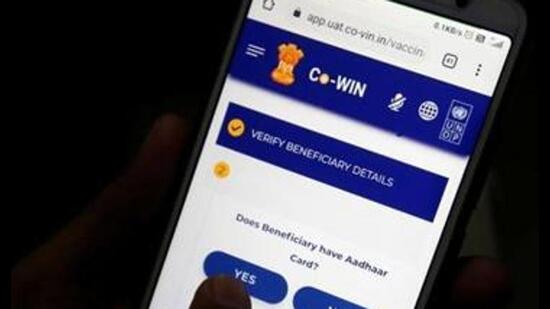The world can learn from India’s digital public infra experience
Dvara Research’s forthcoming report unpacks the concept of citizen-centricity in tech systems for social protection, and analyses three state-level tech systems constructed for the delivery of social protection-related services
Last week, the Digital Economy Working Group (DEWG) of G20 met for the first time under India’s presidency. The presidency is seen as an opportunity to present India externally as a leader in digital public service delivery. For instance, the CEO of Digital India Corporation believes that India’s successes --- CoWIN, DigiLocker, and the Open Network for Digital Commerce ---- offer best practices to be emulated globally.

Indeed, India has over a decade of experience building critical digital public infrastructure for its massive population with diverse needs and varying levels of socioeconomic development. The richness of learnings that we ---- policymakers and watchers ---- have accumulated is unmatched. The chairmanship of the DEWG is an opportunity to support other nations beginning their tryst with digitisation – and help them overcome the trouble of the learning curve that we have navigated for years together.
We draw from a recent study of three state-level digital ecosystems for the delivery of social protection and observe the following learnings for India to take to a global stage:
First, well-defined data privacy and security laws are critical to the success of digital systems. The absence of sufficient data protection protocols can expose citizens to harm and damage their trust in the government and the services it provides.
Many stakeholders in the Indian ecosystem have been vocal about the need to accelerate developments in data rights to match the pace of digitisation in public service delivery. In hindsight, data protection protocols and privacy legislations could have helped prevent data breaches and frauds that, unfortunately, inflicted monetary and privacy harms on the most vulnerable.
Evidence from a survey of citizens also demonstrates that, while they have high trust in the government, they value their data and the ability to provide and withdraw consent. If digital systems are designed to be more responsible with data, they could further inspire citizen confidence in the system, preserve their fundamental right to privacy and reduce the likelihood of tangible harms arising from the misuse of their personal data.
Digital infrastructure requires offline complements to facilitate universal access to public services. The Indian experience of building digital systems demonstrates how to cater to a population with varying levels of digital familiarity. For instance, a key concern of using a digital platform (CoWIN) for vaccine distribution was how it would be accessed by the masses, who remain out of the fold of internet access and smartphone usage.
The decision to enable CoWIN access through agents at the last mile (such as Common Service Centres and on-site registration at vaccine centres) largely mitigated that concern. Our digital journey has demonstrated the importance of ensuring reliable offline alternatives to digital systems. For a population with a 15% gender gap in mobile ownership (as per the 2021 GSMA Mobile Gender Gap report), last-mile agents like CSCs provide all citizens access to digital government services in assisted mode.
However, past work has indicated how these systems suffer from deficiencies of adequacy, availability, and incentive structures, which must be addressed to ensure their sustainability. Furthermore, any design features that impede access to digital systems risk alienating citizens and causing their exclusion from critical social protection schemes. In this context, enabling access to digital public service delivery platforms through mobile phones (given the bulk of the population does not have computer access) and complementing such access with offline infrastructure will make these systems more inclusive.
Finally, robust grievance redress systems improve the quality of public service delivery to citizens. An extensive body of evidence indicates that citizens suffer due to the lack of robust grievance mechanisms in Indian social protection services. When grievance mechanisms do not work well (or at all), citizens are forced towards ad-hoc methods of complaint resolution, which yield inconsistent results and can reduce the quality of services provided.
Typically, citizens must navigate complex grievance procedures, which can beget a lack of trust in the system. This experience often dissuades citizens from engaging with it altogether, precipitating exclusion from social protection and other government services. To this end, digital systems have great potential to empower citizens and hold stakeholders to task when things go wrong. For instance, grievances can be collated and monitored using digital dashboards to implement continuous change – inspiring the citizen’s trust and confidence in the system.
Most tech systems for social protection service delivery in India continually evolve based on learnings amassed from implementation. We specifically call out these learnings to leverage them into a global conversation and create value for citizens in other nations.
Our position as a developing, democratic nation gives us a unique opportunity to demonstrate how digital service delivery can be truly inclusive, accessible, and empowering for citizens. Ultimately, in India and abroad, such systems can be designed to create a better service delivery experience for the citizen by suppressing the risks accompanying the transition to digital systems. By reflecting on and sharing its learnings, India can contribute to creating digital strategies that improve the citizen’s experience of public service delivery while also protecting their civil liberties and digital rights, at home and abroad.
Dvara Research’s forthcoming report unpacks the concept of citizen-centricity in tech systems for social protection and analyses three state-level tech systems constructed for the delivery of social protection-related services. The report will be accessible on the Dvara Research blog.
Aishwarya Narayan is research associate, Dvara Research
The views expressed are personal
All Access.
One Subscription.
Get 360° coverage—from daily headlines
to 100 year archives.



HT App & Website






